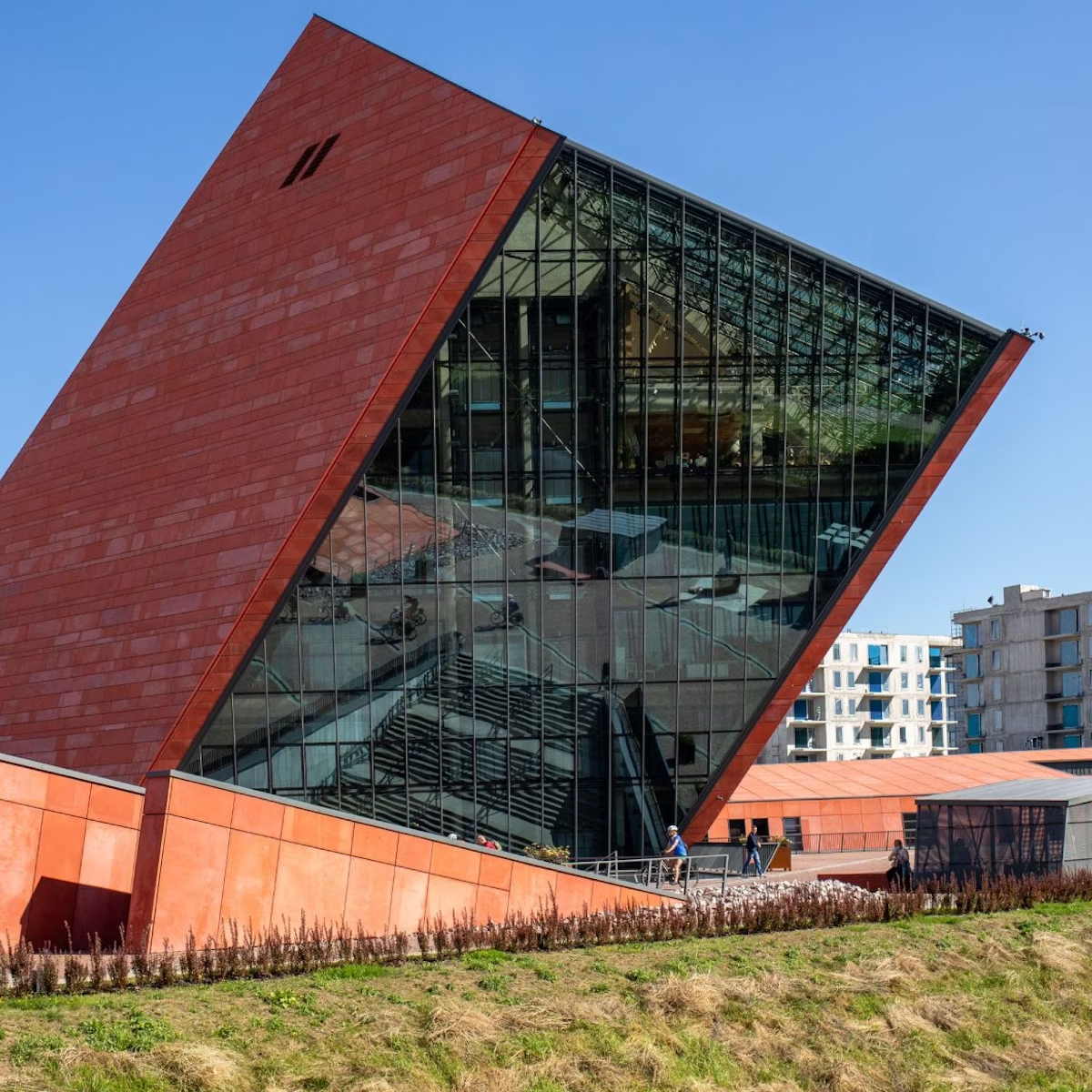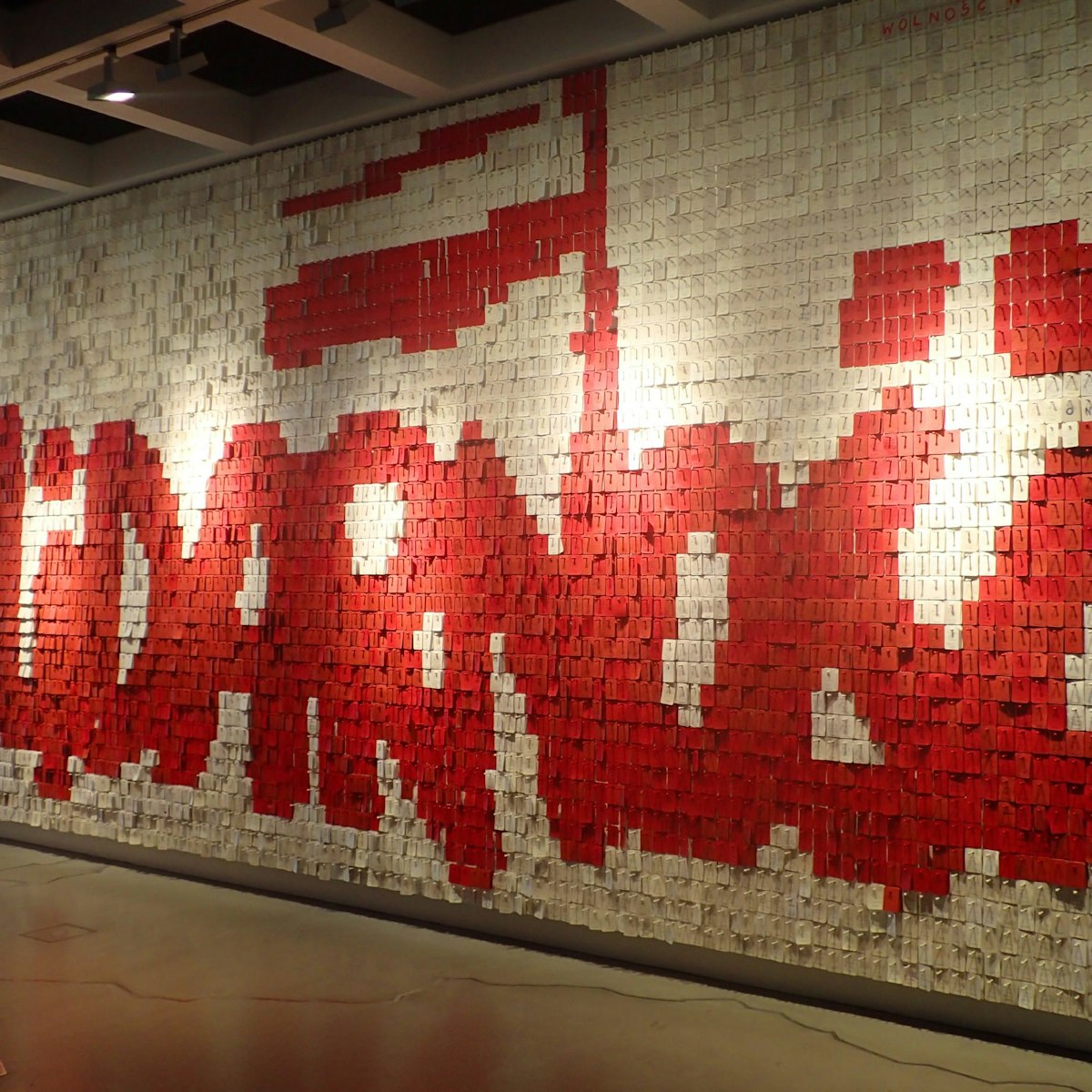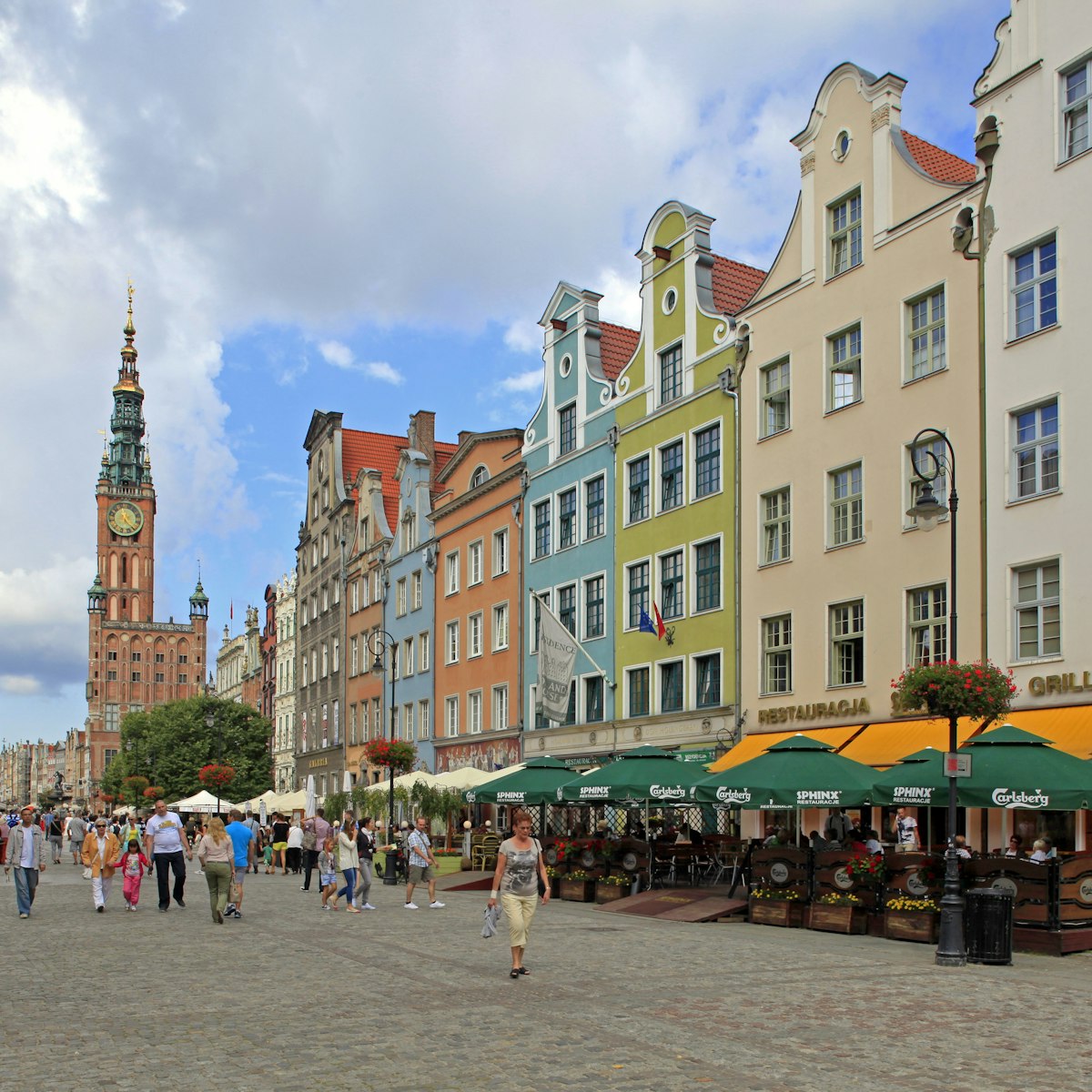The Westerplatte area is famous for one thing: it was here, at 4.45am on 1 September 1939, that the first shots of WWII were fired during the German invasion of Poland. The German battleship Schleswig-Holstein began shelling the Polish guard post. The garrison of just 182 men held out for seven days before surrendering.
The site is now a memorial, with some of the ruins left as they were after the bombardment, plus a massive monument put up in memory of the defenders. The surviving Guardhouse No 1 houses a small exhibition related to the event.







